Coronavirus world: Pfizer says fully vaccinated people need third Covid booster
Pfizer is pushing for those who have been fully vaccinated against Covid to receive a third booster shot. Here’s why.
Coronavirus
Don't miss out on the headlines from Coronavirus. Followed categories will be added to My News.
Pfizer has announced it will seek regulatory authorisation for a third dose of its Covid vaccine to protect against “all currently known variants” of the virus, including the highly transmittable Delta variant.
The booster shot is currently undergoing trials and has shown “encouraging clinical trial data in a small number of participants in our study”, the company said.
It came after initial data from an ongoing trial showed a third shot pushed antibody levels five to 10 times higher against the original coronavirus strain and the Beta variant, first found in South Africa, compared to the first two doses alone.
“The companies expect to publish more definitive data soon as well as in a peer-reviewed journal and plan to submit the data to the FDA (Food and Drug Administration), EMA (European Medicines Agency) and other regulatory authorities in the coming weeks,” the statement said.
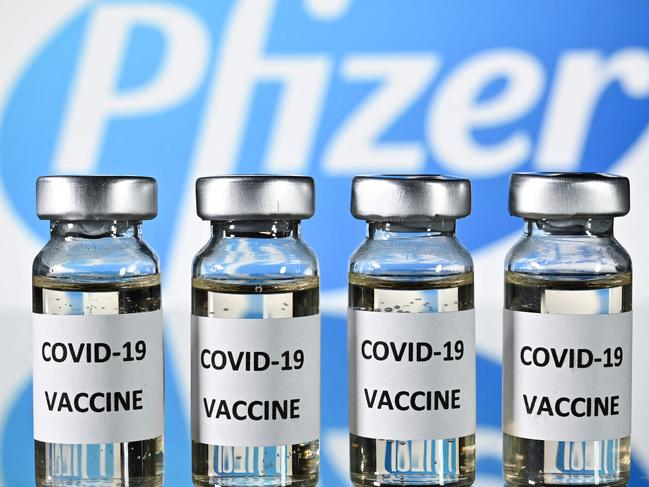
In addition, the companies expect that a third dose will perform similarly well against the highly transmissible Delta strain, which is quickly becoming globally dominant.
Out of caution, the companies are also developing a Delta-specific vaccine, the first batch of which has been manufactured at BioNTech’s facility in Mainz, Germany.
The companies anticipate the clinical studies will begin in August, subject to regulatory approvals.
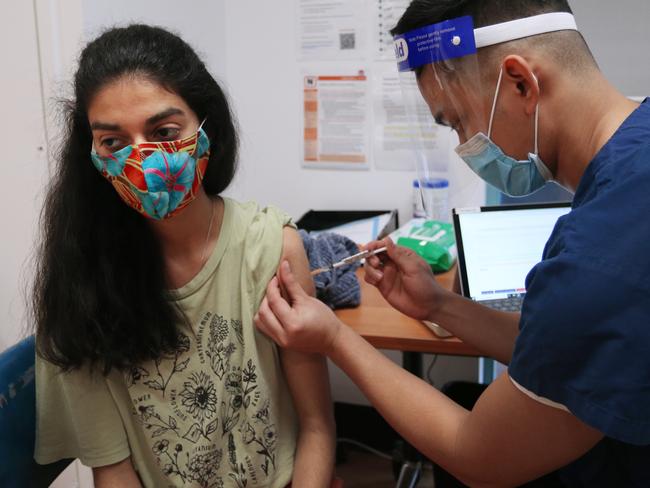
Based on drop-offs in efficacy seen in Israel after six months, the companies said they believe a third dose may be needed within six to 12 months after full vaccination “While protection against severe disease remained high across the full 6 months, a decline in efficacy against symptomatic disease over time and the continued emergence of variants are expected,” the statement said.
The FDA and US Centers for Disease Control and Prevention released a joint statement late Thursday saying authorities were studying “whether or when a booster might be necessary.” “Americans who have been fully vaccinated do not need a booster shot at this time,” the agencies said. “We are prepared for booster doses if and when the science demonstrates that they are needed.”
‘FAMINE-LIKE CONDITIONS’
World hunger rose steeply in 2020, with six times more people living in “famine-like conditions” than in 2019, rights group Oxfam says.
The coronavirus pandemic has exacerbated existing crises sparked by conflict and climate change – the “three lethal Cs” – according to the group.
“Since the Covid-19 pandemic began, vulnerable communities around the world have been sending a clear, urgent and repeated message: ‘Hunger may kill us before coronavirus’. Today, deaths from hunger are outpacing the virus,” it said in a statement.
Oxfam calculates that 11 people a minute are likely dying from acute hunger, compared to seven people a minute from Covid-19.
The group identified places including Yemen, the Central African Republic, Afghanistan, South Sudan, Venezuela and Syria as countries where existing food crises had been worsened by the onset of the pandemic and its economic consequences.
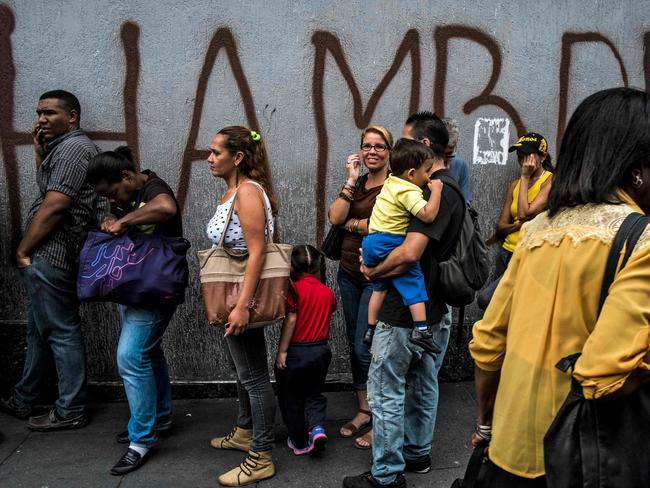
“Mass unemployment and severely disrupted food production have led to a 40 per cent rise in global food prices, the largest increase in more than a decade,” Oxfam said.
In total, it said over half a million people are living in “famine-like conditions” around the world, while 155 million live with “extreme hunger” – the equivalent of the combined populations of France and Germany.
Of the 155 million, two out of three live in a country with ongoing war or conflict.
“Conflict remained the biggest driver of hunger around the globe for three consecutive years, including during the pandemic,” the group said.
“We are currently seeing the superimposition of crises: unceasing conflicts, the economic consequences of Covid-19 and a spiralling climate crisis,” said Helene Botreau, Agriculture and Food Security Advocacy Officer at Oxfam France.
Oxfam’s analysis comes ahead of the United Nations’ Food and Agriculture Organisation’s own report on global food security, due to be published on Monday.
100 COUNTRIES WHERE BRITS CAN TRAVEL THAT AUSSIES CAN'T
Fully-vaccinated Brits will be able to travel to over 100 countries and not have to quarantine on return, with kids also able to holiday with them despite not having the jab.
The move gives UK residents far more freedom of movement than Australians, who can only travel overseas to New Zealand under the trans-Tasman bubble arrangement.
UK Transport Secretary Grant Shapps announced the plans to MPs on Thursday (local time).
“I can confirm today that from the 19th of July, UK residents who are fully vaccinated, through the UK vaccine rollout will no longer have to self, isolate when they return to England.”

The quarantine-free travel will apply to countries listed as “green” and “amber” by the UK government. Those travelling to “red list” countries will been to completed 10 days of hotel quarantine on return.
Travellers will have to prove their vaccination on the National Health Service app.
They will also need to produce a negative Covid-19 test when returning to the UK, and take a PCR test on the second day after their return.
Children under 18 will not have to isolate but will have to take a series of tests.
FANS BANNED FROM TOKYO OLYMPICS
Japan has sensationally banned spectators from the Olympic Games in Tokyo just two weeks out from the opening ceremony, as the Delta variant of Covid-19 spreads across the Asia-Pacific and cases rise again in Europe and the US.
Prime Minister Yoshihide Suga on Thursday announced that a state of emergency has been declared for Japan and said the order would go into effect on Monday until August 22.
The Olympics open on July 23 and end August 8, and the Paralympics open on August 24.
“Taking into consideration the impact of the delta strain, and in order to prevent the resurgence of infections from spreading across the country, we need to step up virus prevention measures,” Mr Suga said.
As part of those measures, Japan – where the Delta strain currently accounts for around 30 per cent of cases – on Thursday banned spectators from Olympic venues in Tokyo, where most competitions will take place. It’s possible that some events on the outskirts of the city may still allow limited crowds.
The decision means Tokyo 2020 will be the first Games ever held largely behind closed doors, the latest unprecedented decision about a Games that will be like no other.
The emergency order will also see the closure of bars, restaurants and karaoke bars that serve alcohol.
“How to stop people from going out for drinks during the Olympics is a main issue,” Health Minister Norihisa Tamura said.
It comes as Tokyo reported 896 new cases of Covid-19 on Thursday, up from 673 a week earlier.
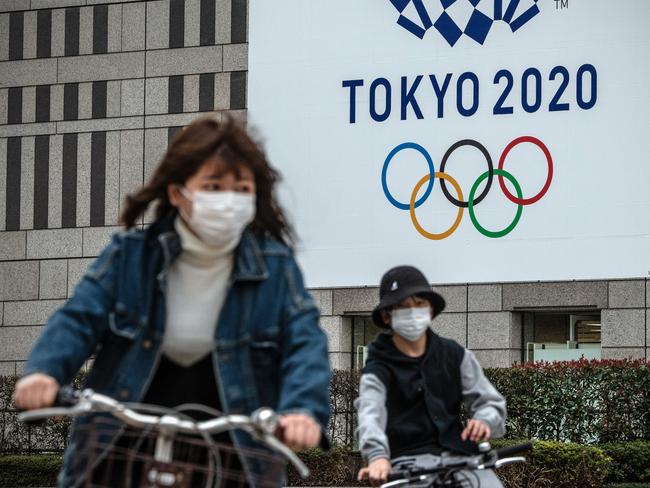
Delta is the most infectious strain of the virus since the start of the global pandemic in early 2020.
Originally detected in India months ago, it has quickly spread and today is accelerating outbreaks even in countries with high vaccination rates, leading the World Health Organisation to warn that the world was at a “perilous point” as the official global death toll hit four million.
Covid LINKED TO ERECTILE DYSFUNCTION
Doctors want more studies done to look at the suspected links between Covid-19 and erectile dysfunction, with reports the condition is affecting a rising number of men.
Many experts think there is a link between men who contracted Covid-19 and went on to develop pneumonia.
The illness can trigger inflammation of the blood vessels, which could lead to erectile dysfunction.
Another hypothesis is that Covid-19 may damage the Leydig cells that produce testosterone.
Dr Ryan Berglund, a urologist at the Cleveland Clinic, told the Los Angeles Times erectile dysfunction could occur from Covid-19 in a similar way to inflammation of the heart muscle, or myocarditis.
“It’s the blood vessels themselves that can become inflamed, which could cause an obstructive phenomenon and negatively impact the ability to get erections,” he said.
A survey by the University of Rome reviewed in the journal Andrology in March found the prevalence of erectile dysfunction among 100 sexually active men was significantly higher, at 28 per cent, among the 25 who had tested positive for the virus, compared with the 75 who had not, at 9.33 per cent.
A study of two men showed that they still had virus particles near the endothelial cells lining the insides of the blood vessels in their penises up to eight months after their Covid-19 symptoms disappeared.
They developed severe erectile dysfunction even though they had not had it before contracting the virus, according to a paper by the urology department of the University of Miami Miller medical school published in The World Journal of Men’s Health in May.
Post-mortem examinations of 12 people who died from Covid-19 also showed “significantly reduced Leydig cells”, according to a review in the Journal of Endocrinological Investigation.
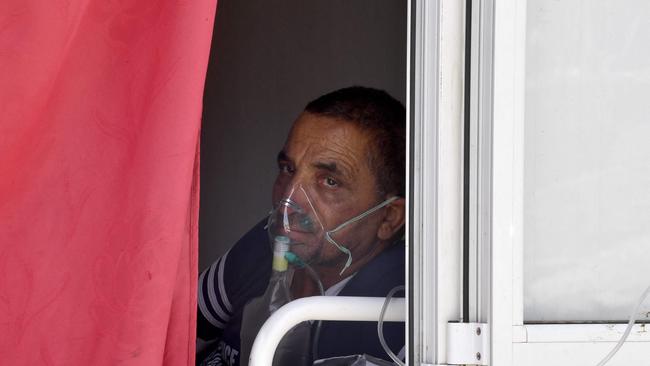
INDONESIA BECOMES A Covid HOTBED
Indonesia has become a global hotspot for Covid-19 as the highly infectious Delta variant rips through Asia and the global death toll surpasses four million.
Indonesia expanded nationwide curbs Wednesday to battle its deadliest Covid-19 wave yet, as the daily death toll rocketed past 1,000 – as much as 10 times the daily mortality rate less than a month ago – and the government warned the worst may be yet to come.
The new restrictions will apply to dozens of cities – and includes popular holiday destination, Bali, and extend from Sumatra island in the west to easternmost Papua.
Many overwhelmed hospitals are refusing new patients, leaving scores to die at home, while cemetery workers race to bury the soaring number of bodies.
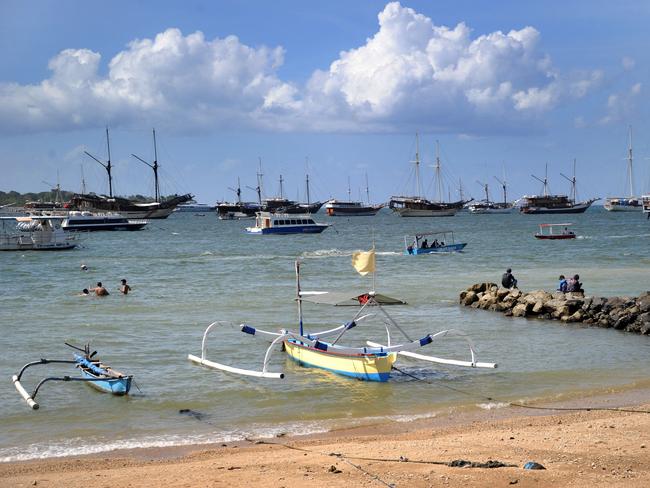
Offices, mosques, parks, shopping malls and restaurants have been shuttered across the hard-hit capital Jakarta and main island of Java as well as Bali under new curbs that started from the weekend.
But there are widespread reports of violations including offices and shops still operating despite shutdown orders.
The world’s fourth most populous nation on Wednesday reported a record 34,379 new infections and 1,040 deaths.
Indonesia has become a global hotspot, with hospitals having to turn away patients and authorities forced to import oxygen supplies.
The regions affected have much lower daily case counts than Covid epicentre Java, but healthcare services in those regions are already under strain and an explosion in infections could bring them to their knees, said senior minister Airlangga Hartarto.
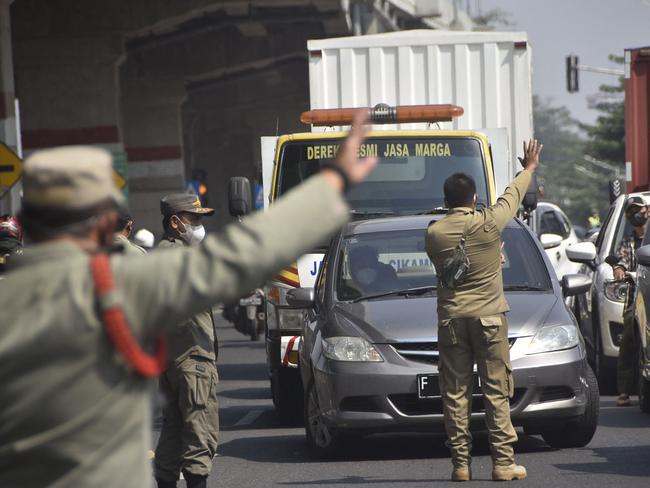
More than four million people have now died of Covid-19 infections, according to the WHO.
“The world is at a perilous point in this pandemic,” said WHO chief Tedros Adhanom Ghebreyesus, calling the four-million figure an underestimate of the true toll.
He said some countries with high vaccination coverage were “relaxing as though the pandemic is already over”, while others have seen sharp spikes in cases because of highly-transmissible variants and a “shocking inequity” in access to vaccines.
STUDY REVEALS PFIZER JAB’S WEAKNESS
Rising coronavirus cases in Israel, where most residents are inoculated with the Pfizer vaccine, offer “a preliminary signal” the vaccine may be less effective in preventing mild illness from the Delta variant, a top expert has said.
But Ran Balicer, chairman of Israel’s national expert panel on Covid-19, stressed it was “too early to precisely assess vaccine effectiveness against the variant” first identified in India in April that is surging across the globe, and the source of Sydney’s current outbreak.
That is partly due to the overall low number of cases among fully vaccinated Israelis, and because exposure to the virus and the likelihood of being tested are not evenly distributed across the population, further complicating efforts to reach conclusions about the data.
Mr Balicer, also the chief innovation officer at Clalit, Israel’s largest health maintenance organisation (HMO), told AFP that the Delta variant’s emergence as the “dominant strain” in the country has led to a “massive shift in the transmission dynamic”.
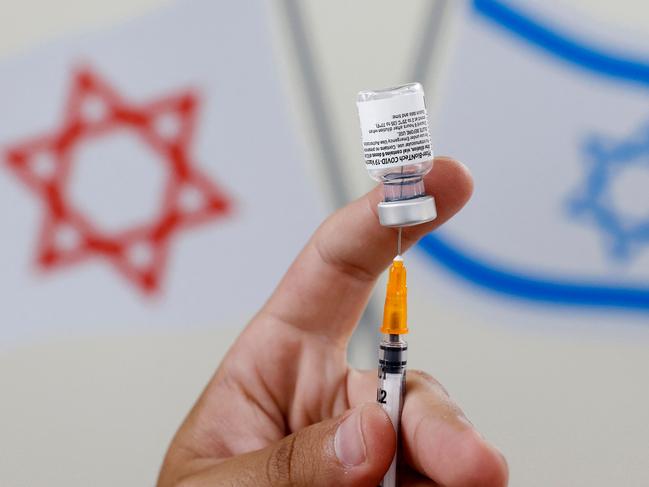
Israel’s vaccine rollout that began in December was one of the world’s fastest, making the Jewish state a closely-watched case study on whether mass inoculation offers a path out of the pandemic.
Vaccinations had brought transmission down to about five local new cases per day, but that figure has risen to around 300 in recent days, with the Delta variant raging.
About half of the daily cases are among children, and half are among mostly vaccinated adults.
“To some extent that could be expected since 85 per cent of Israeli adults are vaccinated,” Balicer said.
“But the rates in which we see these breakthrough cases make some believe they extend beyond that expected point and suggest some decrease in vaccine effectiveness against mild illness — but not severe illness — is likely.”
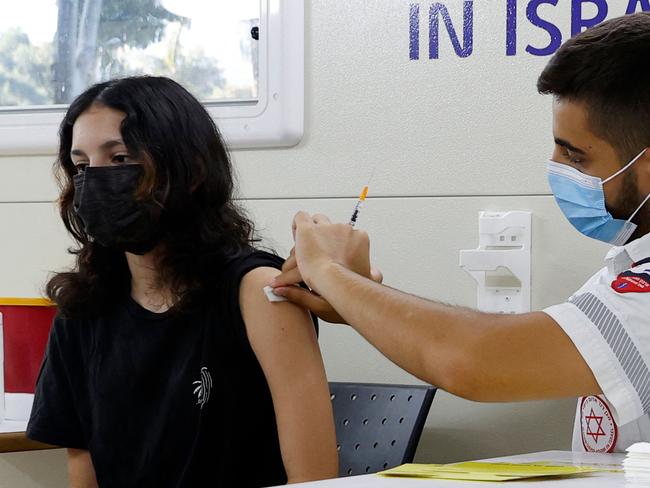
The number of severe cases among vaccinated Israelis has risen in recent days from roughly one every two days up to five cases per day.
Israeli Prime Minister Naftali Bennett warned Sunday, ahead of a weekly cabinet meeting, that “with the Delta variant running amok,” Israel may have to reintroduce certain restrictions that were lifted last month to curb transmission.
Mr Balicer said it was unlikely Israel could contain rising cases without further restrictions being reimposed, but voiced hope they would be mild and that Israel’s “vaccine wall” of inoculated citizens will help reduce further spread.
More Coverage
Originally published as Coronavirus world: Pfizer says fully vaccinated people need third Covid booster



